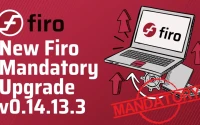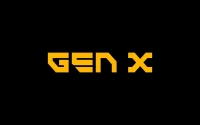You know that jingle. If you’ve lived in Minnesota for more than a week, you’ve heard it. That chipper, annoyingly catchy tune for Minnesota Rusco that wormed its way into your brain, promising quality, trust, and a 70-year legacy of standing by your work.
That legacy went up in smoke last Tuesday.
One minute, Minnesota Rusco is a beloved local institution. The next, it’s a ghost. The phones don’t work. The doors are locked. And for people like Kari and Jeremy Frahm, nearly $48,000 of their hard-earned savings vanished into thin air, all because they trusted a jingle and a brand that had been around since 1955. They found out not from a phone call or an email, but from a damn Google search when their installers just… didn't show up.
Imagine that. The silence in your house, the spot where your new windows are supposed to be, the growing dread as you type the company’s name into your phone. And there it is. Closed. Gone. Your money, your project, your trust—all deleted. This isn’t just a business closing. This is a heist in broad daylight.
The Anatomy of a Disappearance
Let’s be brutally honest. A 70-year-old company doesn't just evaporate overnight by accident. This was a decision. A calculated, cold-blooded choice made by people in a boardroom somewhere far away from the Minnesota families now staring at half-finished kitchens and massive holes in their bank accounts.
The Frahms are out nearly fifty grand. They're the face of this story, but behind them are hundreds of others. And what about the employees? The salespeople and installers who built that company's reputation, now jobless without warning. They’re the ones left to field the angry calls, except they can't, because the company they worked for has ceased to exist. It’s a complete and total abdication of responsibility.
We’re talking about a $15 million backlog of projects. That’s not a small number. That’s a crater blown into the local economy and the lives of regular people who saved for years to make their homes a little better. They did their part, they wrote the check, and in return, they got fleeced. It's a tragedy. No, a tragedy is an act of God. This was an execution, carried out with chilling corporate precision.
And the silence is deafening. No press release, no heartfelt apology, no explanation. Just a digital tombstone on a Google search page. How is it even legal for a company to hold millions in customer deposits and then just... peace out? Where is the protection for the consumer who plays by the rules?

Here Comes the "Good Guy"
Into this mess steps TWS Remodeling, offering a lifeline. They’ve pledged to honor 50% of the contract value for any stranded Rusco customer. The owner says it’s about "goodwill" and "restoring the faith in the contractors of the community." And look, I’m not going to knock it. It’s a hell of a lot more than anyone else is doing. For families staring at financial ruin, it’s a tangible offer of help.
But I’m a cynic. I have to be. Let’s deconstruct that statement: "I'm hoping to break even." On a 50% discount? Give me a break. This is also, offcourse, a brilliant marketing move. TWS is positioning itself as the anti-Rusco, the trustworthy local hero cleaning up the mess. They’re capturing a massive, desperate customer base and generating a level of goodwill that no advertising campaign could ever buy.
Is it a genuinely good deed? Or is it a savvy business capitalizing on a competitor’s implosion? Maybe it’s both. I guess it doesn’t really matter to the Frahms if their windows get installed. But we shouldn’t kid ourselves into thinking this is pure altruism. This is capitalism, red in tooth and claw, and sometimes that means one company’s death is another’s golden opportunity. The real question is, why is there a mess this big to clean up in the first place?
The Puppet Master in Dallas
Here’s the part of the story that really makes my blood boil. Minnesota Rusco wasn't some standalone mom-and-pop shop. It was a puppet, and the strings were being pulled from Dallas, Texas, by a parent company called Renovo.
Renovo is one of those faceless holding companies that buys up established local brands across the country. And guess what? It wasn’t just Minnesota Rusco that got the axe. Six other Renovo-owned companies in different states were shuttered at the same time.
This changes everything. This wasn't a local business failing. This was a corporate parasite sucking its host dry and then moving on. Renovo likely bought Rusco for its name recognition, its 70-year-old reputation, and its customer list. They leveraged that trust, collected the deposits, and then, when the numbers didn't add up on their spreadsheet, they cut the cord. They amputated the limb, leaving the community to deal with the bleeding.
This is the playbook of modern private equity. It’s a shell game. They hide behind layers of corporate structure, making it nearly impossible to hold anyone accountable. The people in Dallas who made this call will never have to look the Frahms in the eye. They’ll just dissolve the LLC, write it off, and look for their next victim. And while a `minnesota rusco lawsuit` is inevitable, who are they even suing? A ghost corporation owned by another ghost? It’s a sick joke, and the punchline is a family’s life savings.
Same Vultures, Different State
At the end of the day, the feel-good story of a local competitor stepping up is just a distraction. It’s a nice, heartwarming band-aid on a gaping, systemic wound. The real story isn't that Minnesota Rusco closed. The real story is that a faceless corporation from Texas can buy a 70-year-old local institution, drain it of its value, vaporize it overnight with zero warning, and leave Minnesota families holding the bag. This isn't a bug in the system; it's a feature. And you can bet Renovo is already scouting its next "investment." It's a textbook case of How Minnesota Rusco’s 70-year legacy ended in heartbreak.









